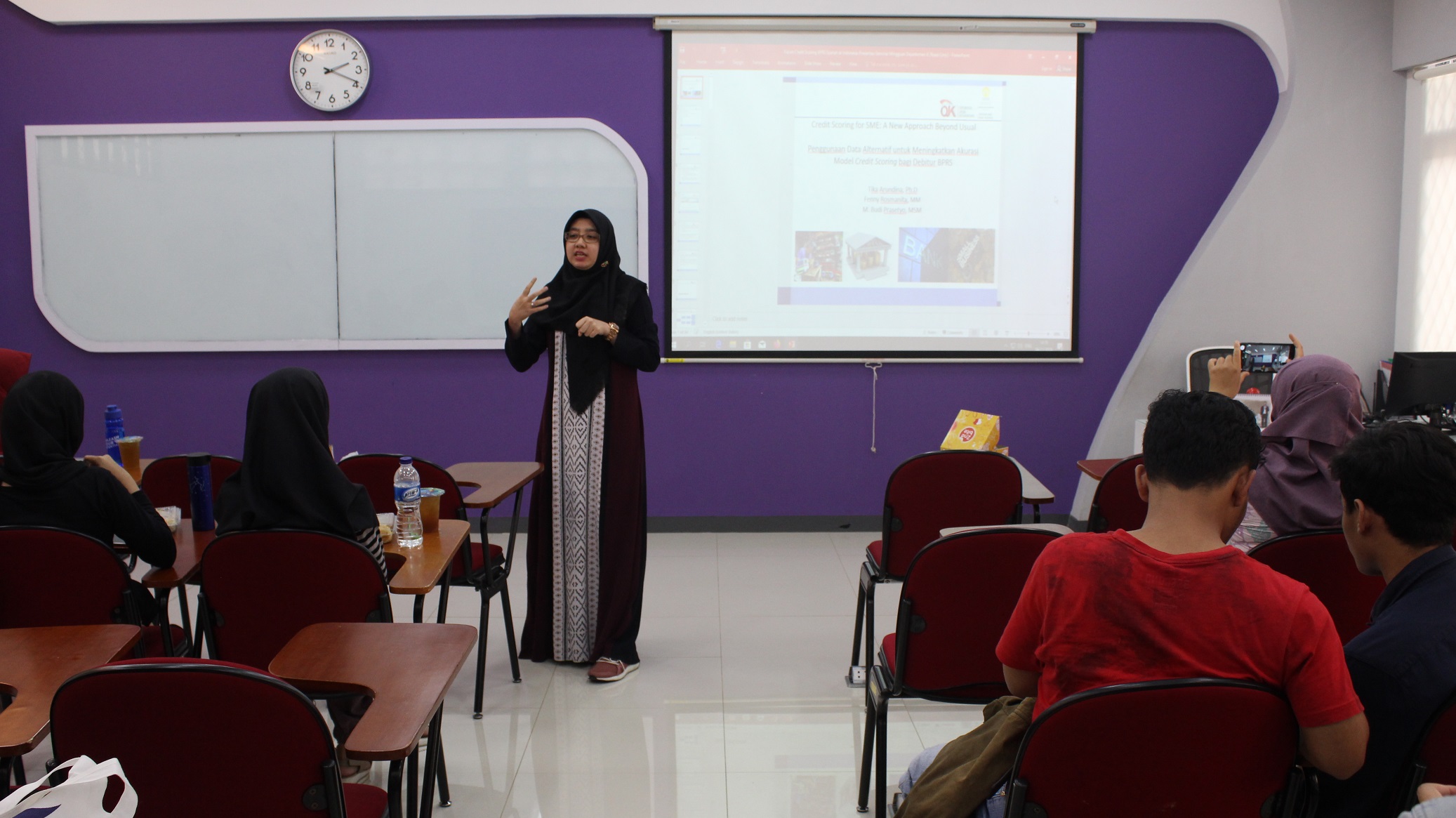Use of Alternative Data to Improve Accuracy Credit Scoring Model for BPRS Debtors
Hana Fajria ~ Public Relation FEB UI
DEPOK – The Department of Economics, Faculty of Economics and Business, University of Indonesia held a Weekly Seminar entitled “Credit Scoring for SME: A New Approach Beyond Usual”. The event which took place from 14.00 WIB until 15.30 WIB was held in Room B.104, Building B, Faculty of Economics and Business, University of Indonesia, on Wednesday (6/11/2019).
.
In this seminar as a speaker, is Tika Arundina Aswin, M.Sc., Ph.D. as the Chair of the S1 Islamic Economics Study Program. Tika explained about the credit rating for BPRS debtors, “This research was originally made because the OJK request, which was motivated because it wanted to make a different credit scoring, high risk because of high information asifasi, this is the main problem that occurs between banks and debtors, profiles of their customers. Usually what has been received by banks, capital financing is also micro, the ability to manage information is not good, for this reason, this research is conducted to minimize asymmetric information by conducting in-depth studies of prospective debtors, “said Tika.
.
Sharia Rural Bank (BPRS) has a very strategic role in the national banking system. BPRS is one of the mainstays in the national banking system in channeling financing to small and medium entrepreneurs. However, SME debtors have an unclear nature of information due to new business, lack of adequate guarantees, low technology mastery, lack of accounting skills, etc. Because of this problem, the risk of default on SME debtors tends to be higher than corporate debtors. In the long run, this will cause instability in the national banking system. One way to reduce the level of credit risk is to create new credit scores that are accurate and in accordance with the characteristics of the BPRS debtors.
.
Therefore, the latest developments in credit assessment have led to the use of alternative data such as qualitative data, cellular prepaid, psychometric, social data and debtor e-commerce transactions. Data has been applied in several countries and is claimed to improve the accuracy of traditional credit assessments and increase opportunities for people without bank accounts to get credit access from banks. This study seeks to examine and evaluate alternative types of data that can be used in the context of BPRS in Indonesia.
.
Using Multinominal logistics and Artificial Neural Networks for 500 SRB creditors, this study was found separate from the creditor’s financial profile, other alternative data such as communication costs, psychometric data, risk appetite and religiosity can predict 98.65% of credit defaults. It is expected that this alternative credit score model can be applied so that it helps the BPRS in managing credit risk better.

